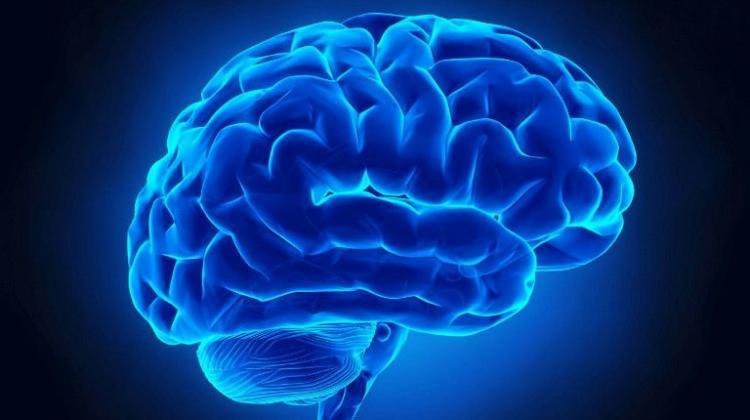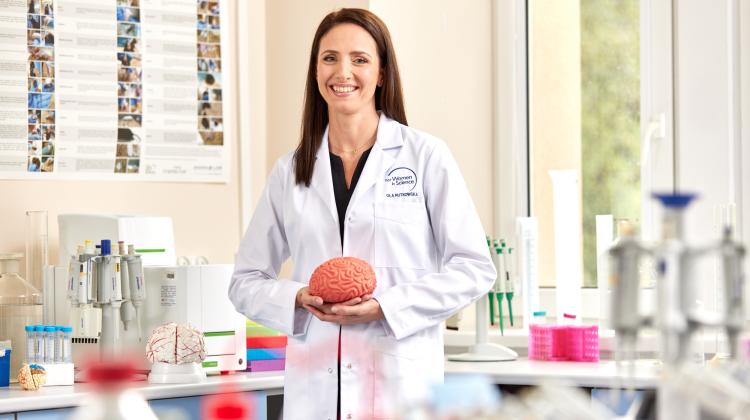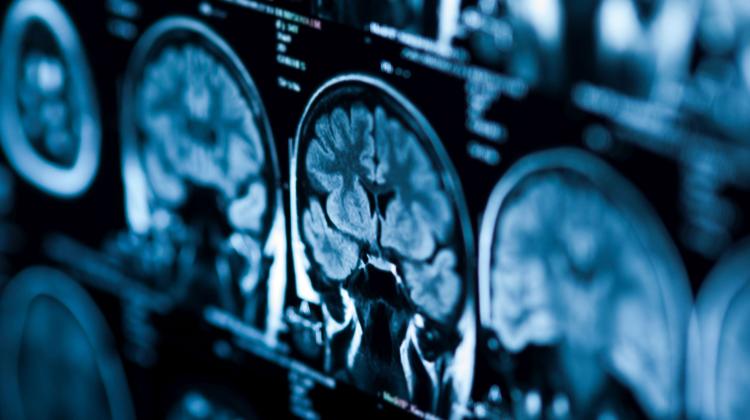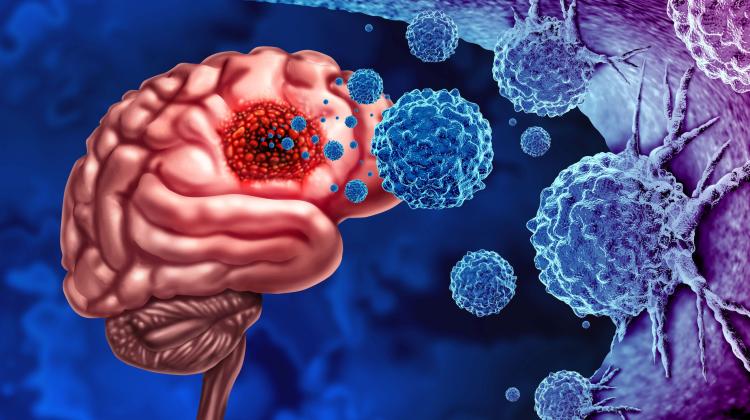Polish researchers are looking for a method for delivering drugs directly to the brain
 Photo: Fotolia
Photo: Fotolia
Controlled delivery of drugs directly to the brain? Researchers are working on nanostructures that will cross the endothelial barrier that protects the brain. In the future, they could deliver drugs to the brain, allowing to treat Alzheimer`s or Parkinson`s disease.
Researchers will tackle the problem of controlled drug delivery directly to the brain. This possibility could contribute to the effective treatment of neurodegenerative diseases such as Alzheimer`s or Parkinson`s disease. A natural obstacle prevents treatment: the endothelial barrier that protects blood vessels, tissues and the brain from germs and toxic substances and treats all substances as undesirable. To penetrate this barrier, scientists want to use nanoparticles: dendrimers, dendrons or gold nanoparticles that could deliver drugs to the brain.
International team of scientists from Latvia, Spain and Poland will work on solving this problem. The project "NanoTENDO: Nanoparticle Transfer Through Endothelial Barrier", which received funding in the M-ERA.NET competition, is coordinated by the head of the Department of General Biophysics of the University of Lodz, Prof. Maria Bryszewska.
"Our project concerns investigating the use of nanoparticles to transfer certain medicinal substances across the endothelium barrier, which is an important part of the blood-brain barrier that protects our most important organ. The problem is that while it is good that this protection exists, it also causes great difficulties in supplying medicines, because every substance that we want to deliver to the brain is treated as an intruder" - Prof. Bryszewska explains.
The goal of the scientists is to find and describe nanostructures that will be able to penetrate the endothelial barrier (and thus - the blood-brain barrier) and transport drugs via this route.
Three types of nanoparticles will be used in the research. One of them are dendrimers - polymers with a tree crown-like structure, to which researchers can attach drugs or short nucleic acids, increasingly used in therapy. The second type, dendrons, are the dendrimer fragments attached to their core molecule during the synthesis. In turn, gold nanoparticles themselves have antibacterial activity.
Nanoparticles for research will be provided by Spanish experts from the University of Alcala, who specialize in the synthesis of carbosilane dendrimers. The task of the Polish team will be to investigate the possibility of transporting the supplied nanoparticles (and their complexes with drugs) through a model endothelial barrier.
"Our research will involve biophysical characterisation of these structures: we will examine their properties, determine which ones are least toxic and capable of attaching drugs and short nucleic acids. We will also verify whether they form relatively stable complexes with drugs and whether they will penetrate endothelial cells" - explains the leader the Polish research team.
"We are also going to model and study pathological states of endothelial cells, which will be subjected to oxidative stress that occurs in many diseases. We will observe whether the pathology of this structure will modify the transport across the endothelium membrane" - adds Prof. Bryszewska.
As part of in vitro research (outside the body), the researchers will check if the nanostructures are non-toxic, if they are able to form a complex with the drug, cross the endothelial barrier and deliver it to the brain. This will be followed by animal (in vivo) studies. They will be conducted by two teams of Latvian scientists from the University and the Institute of Biomedical Research in Riga.
"The nanostructures will be administered to mice, including animals, in which diseases such as Alzheimer`s or Parkinson`s will be experimentally induced. This will allow to check whether the effect at the level of the living organism will be close to that which we describe" - explains the researcher from Łódź.
The researchers hope that if the trials are successful, they will contribute to the development of one of the possibilities of treating neurodegenerative diseases. Despite the many attempts made by researchers around the world, these diseases still strongly resist any treatment attempts.
Such complexes of nanoparticles with drugs could also be used in all diseases, in which the endothelial barrier is damaged, for example in ischaemic stroke. "Our solutions could then be applied at a more general level, and aimed at more than one disease" - concludes Prof. Maria Bryszewska.
The Polish team of scientists received 151 thousand euros funding from the National Science Centre, and the entire project - over 600,000 euros. The research is scheduled to be completed in 2022.
PAP - Science in Poland, Kamil Szubański
szu/ zan/ kap/
tr. RL
Przed dodaniem komentarza prosimy o zapoznanie z Regulaminem forum serwisu Nauka w Polsce.


















